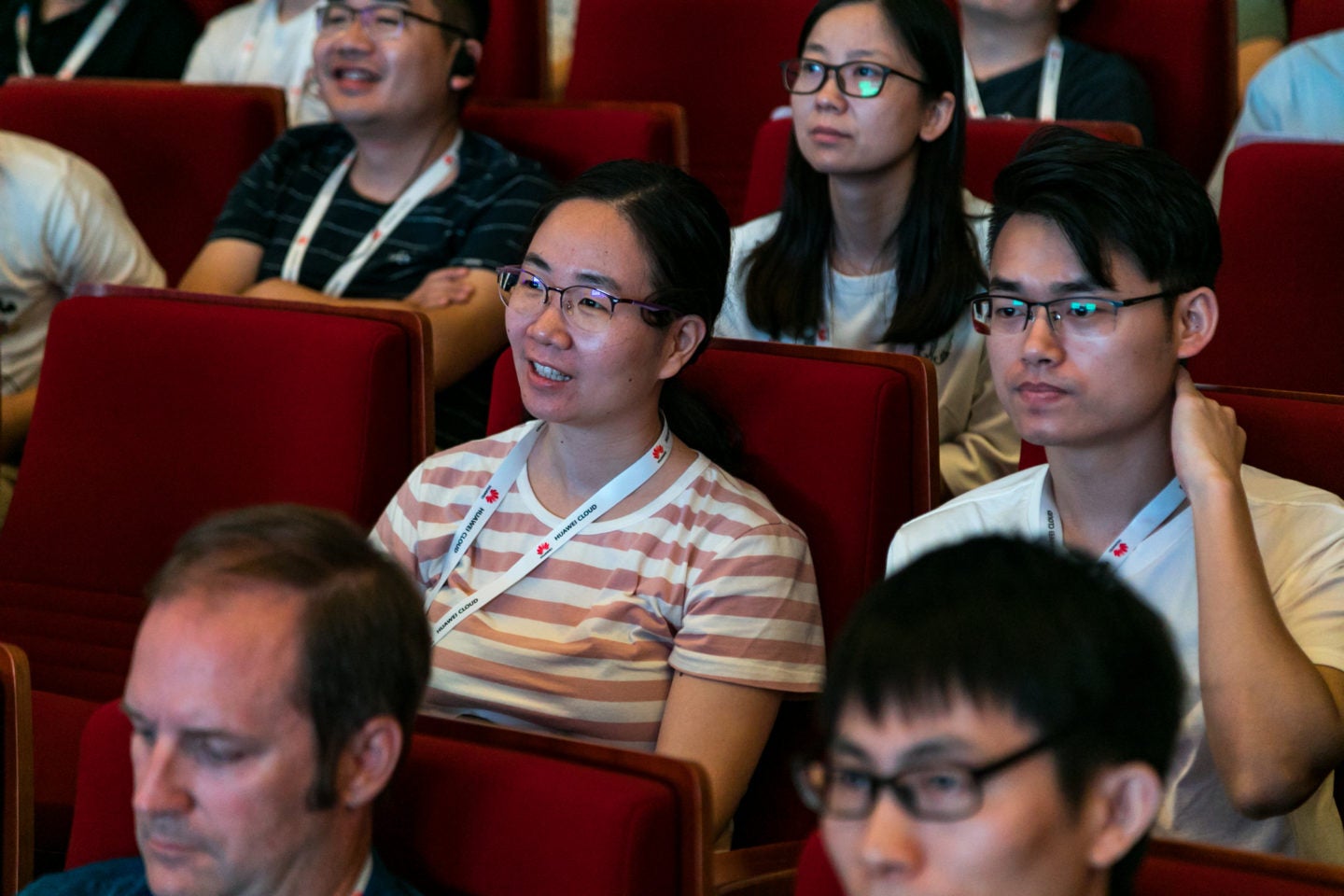概览
感谢您作为KubeCon + CloudNativeCon + Open Source Summit China 2023的提交评审人员所付出的努力。
以下是Sessionize评估模式的指南,以及在审核您的提案集时使用的最佳实践。请收藏此页面以供方便参考。如果您有任何问题,请发送电子邮件给CNCF内容团队。
作为评审人员参与,表示您同意遵守CNCF审稿委员会和活动志愿者准则。
OVERVIEW
Thank you in advance for your efforts as a submission reviewer for KubeCon + CloudNativeCon + Open Source Summit China 2023.
Below you will find guides to Sessionize’s evaluation modes in addition to best practices to use when reviewing your set of proposals. Please bookmark this page for easy reference. If you have any questions, please email the CNCF Content Team.
By participating as a reviewer, you agree to the CNCF Program Committee and Events Volunteer Guidelines.
Program Committee Responsibilities
Program Committee members carefully evaluate 50-200+ proposals in their assigned topic for each event. They are limited to participating in a maximum of two events per year.
星级评分评估模式

星级评分评估模式非常用户友好,只需要审查会议信息并给出一到五星的评级。此外,还可以使用半星评级(0.5、1.5、2.5、3.5、4.5)。完成后,只需点击“保存并继续”按钮确认评级并继续下一个会议。
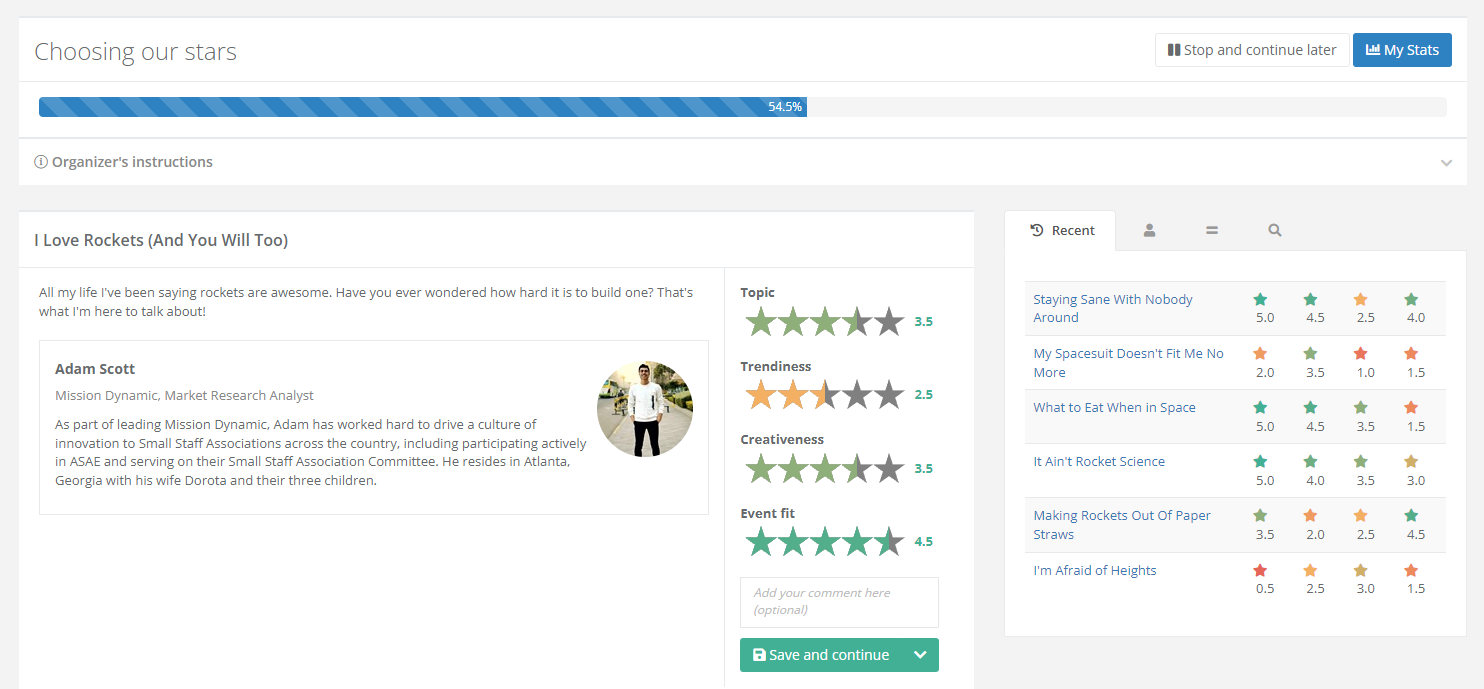
KubeCon + CloudNativeCon采用了一个星级评分评估计划,涉及多个标准。作为评估人员,您需要根据以下四个标准来评估会议,而不是仅仅给出一个整体评级:
此外,必须以评论的形式为每个会议提供反馈意见。确保反馈是建设性的非常重要,尤其是对于被拒绝的提案,因为提交提案的作者可能涵盖了从大公司的副总裁到大学学生的范围。建设性的反馈可以包括突出提案的积极方面、提供有益建议和提供客观的反馈意见。
非常重要的是要避免直接攻击,而是专注于能够帮助改进提案的客观反馈。此外,我们强烈建议不要使用模糊的评论,例如“评分很难,我必须削减这个”或“LGTM”。相反,提供思考深入的评论对于协调人在做出最终选择方面是至关重要的。
当您根据标准评分一个会议并提供建设性反馈后,请点击“保存并继续”以继续进行下一个会议的评估。请注意,如果您的评论被认为是不具有建设性的,可能不会邀请您成为未来的审稿委员会成员。
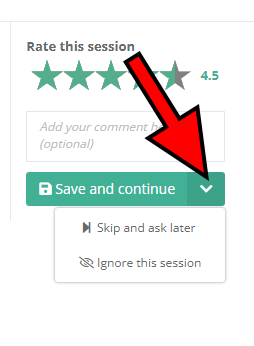
如果您对某个会议的决定感到困难,您可以选择跳过该会议,稍后再回来评估。只需点击 Save and continue 按钮旁边的箭头来展开相应的菜单,并选择 Skip and ask later 选项。如果您刚刚开始评估过程,并希望更好地了解提交的会议的整体质量,这将非常有用。
如果某个会议涉及您完全不熟悉的主题或存在利益冲突,请点击”忽略该会议”按钮。评估系统将不再询问您有关该会议的评价。
追踪您的进展

在评估过程中,页面顶部会显示一个进度条,显示您的进展情况。如果在任何时候您需要暂停评估过程,请点击进度条上方的”停止并稍后继续”按钮。在返回后,您可以从您离开的地方继续评估。
右侧是一个带有几个有用选项卡的框。默认选项卡是”最近”。您可以使用它来追踪您过去的会议评估,但它还有一个额外的用途:您可以点击任何会议重新打开它们,并有可能修改您的评估。
这里是前面提到的框中各个选项卡的完整概述:
- 最近 – 您最近评估的会议列表
- 演讲者 – 查看同一演讲者提交的其他会议(如果存在)
- 相似 – 浏览相似的会议
- 搜索 – 浏览所有提名的会议
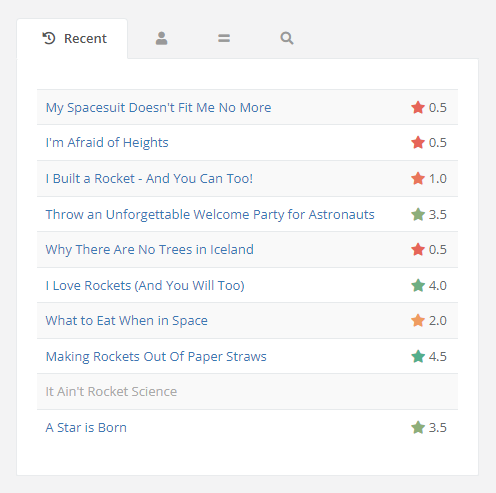
完成评估并查看您的统计数据
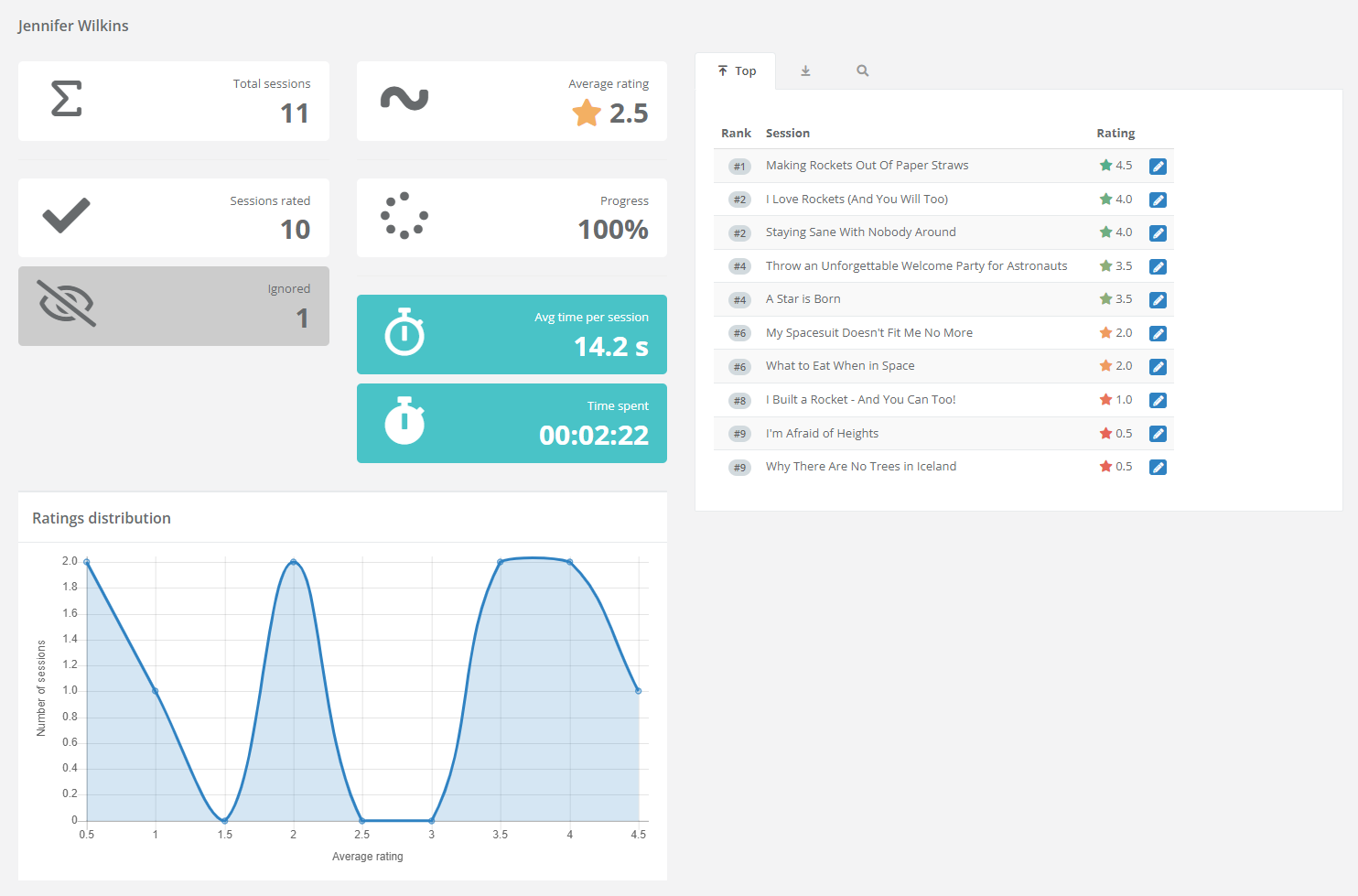
完成评估后,您将自动重定向到”评估”页面。通过打开刚刚完成的评估计划,您可以查看您的统计数据,并且可以通过点击相应的编辑按钮来更改对任何会议的评估。
STAR RATING EVALUATION MODE

The Star rating evaluation mode is highly user-friendly, requiring only an examination of the session information and a rating between one to five stars. Additionally, half-star ratings (0.5, 1.5, 2.5, 3.5, 4.5) are also available for use. Upon completion, simply click the Save and Continue button to confirm your rating and proceed to the next session.

KubeCon + CloudNativeCon utilizes a Stars rating evaluation plan that involves multiple criteria. As an evaluator, you will be required to assess sessions based on the following four criteria, as opposed to assigning a singular overall rating:
In addition, it is mandatory to provide feedback in the form of a comment for each session. It is important to ensure that feedback is constructive, especially for rejected proposals, as submitting authors may range from a VP at a large company to a university student. Constructive feedback may include highlighting the positive aspects of a proposal, offering helpful suggestions, and providing factual feedback.
It is crucial to avoid direct attacks and instead focus on objective feedback that can help improve the proposal. Moreover, we strongly advise against using vague comments like “Scoring was tough, I had to cut this” or “LGTM.” Instead, it is essential to provide thoughtful and insightful comments that will assist the co-chairs in making their final selections.
Once you have finished rating a session based on the criteria and provided constructive feedback, click on Save and continue to proceed to the next session. Please note that if your comments are deemed unconstructive, you may not be invited to serve as a program committee member in the future.

If you have a hard time coming up with a decision about a certain session, you have the option to skip it and come back to it later. Simply click on the arrow flanking the Save and continue button to expand the appropriate menu and select the Skip and ask later option. This can be particularly useful if you have only just started with the evaluation process and would like to get a better sense of the overall quality of the submitted sessions.
In case a certain session covers a subject you’re completely unfamiliar with or poses a conflict of interest, click on the Ignore this session button. The evaluation system won’t ask you about that session anymore.
Track your progress

During the evaluation process, a progress bar will be displayed at the top of the page, providing an indication of your progress. If, at any point, you need to pause the evaluation process, click on the Stop and continue later button located above the progress bar. Upon returning, you can resume the evaluation from where you left off.
On the right is a box with several useful tabs. The default tab is Recent. You can use it to keep track of your past session evaluations, but it has an additional purpose: you can click on any of the sessions to reopen them and potentially change your evaluation.
Here’s a complete overview of the tabs found in the aforementioned box:
- Recent – a list of sessions you recently evaluated
- Speaker – see other sessions submitted by the same speaker (assuming they exist)
- Similar – browse similar sessions
- Search – look through all nominated sessions

Complete the evaluation and view your stats

Once you’re done with the evaluation, you’ll automatically be redirected to the Evaluation page. By opening the evaluation plan you’ve just completed, you can view your statistics, as well as potentially change your mind on any of the sessions by clicking on the corresponding edit button.
云原生计算基金会审稿委员会+活动志愿者准则
帮助规划、组织或制作云原生计算基金会(CNCF)活动的志愿者通常被视为CNCF社区或与活动相关的CNCF项目的代表,他们的行为可以对参与者的体验和对活动的感知产生重要影响。因此,为了促进我们社区的开放、积极和友好的环境,所有活动志愿者都应当以以下所述的高标准的职业行为为准则。
这些准则适用于志愿者与他们协助规划、组织、筛选演讲者或以其他方式担任志愿者的任何CNCF活动相关的行为和言论。这些准则适用于活动之前、期间和之后的相关行为,无论是在社区空间内还是在社区空间之外(包括个人社交媒体账户上的言论),适用于虚拟和实体活动。除了这些准则外,活动志愿者还必须遵守Linux Foundation活动行为准则和CNCF行为准则。
请保持专业和礼貌
活动志愿者将会:
请以建设性的方式表达反馈,而非破坏性的方式
活动志愿者的沟通方式对社区中的其他人在个人和职业方面都会产生很大的影响。活动志愿者应该努力以建设性的方式提供与活动或任何个人或组织参与活动相关的反馈或批评,以支持他人的学习、成长和改进(例如,提供改进建议)。活动志愿者应该避免以破坏性或贬低的方式提供反馈(例如,侮辱或公开羞辱某人的错误)。
在选择沟通渠道时要考虑周到
活动志愿者在选择沟通反馈渠道时应该考虑周到。正面或中立的反馈可以在任何渠道或媒介上进行沟通。相反,对任何个人参与者、工作人员或志愿者的批评应该在一个或多个私人渠道(而不是公开)进行,以避免造成不必要的尴尬。对于与活动无关的批评,可以在私下或公开表达,只要以尊重、考虑周到和专业的方式表达
对这些准则的修改和不遵守的后果
活动组织者可能会不时更新这些准则,并通过电子邮件和专为活动志愿者指定的CNCF Slack频道通知志愿者。然而,对这些准则的任何更改不会有追溯效力。如果Linux Foundation活动团队确定志愿者违反了这些准则或Linux Foundation活动行为准则,可能会立即暂停或解除该志愿者在任何与活动相关的志愿者职位上的参与,包括参与活动相关委员会。如果这些准则有更新并且志愿者不愿意同意,他们在与活动相关的志愿者职位上的参与将会暂停,直到他们同意为止。
CNCF Program Committee + Event Volunteer Guidelines
Volunteers who help with the planning, organization, or production of a CNCF event are often seen as representatives of the CNCF community or CNCF project that the event relates to, and their actions can meaningfully impact participants’ experience and perception of the event. Therefore, and in the interest of fostering an open, positive, and welcoming environment for our community, it’s important that all event volunteers hold themselves to a high standard of professional conduct as described below.
These guidelines apply to a volunteer’s conduct and statements that relate to or could have an impact on any CNCF event that the volunteer helps plan, organize, select speakers for, or otherwise serve as a volunteer for. These guidelines apply to relevant conduct occurring before, during, and after the event, both within community spaces and outside such spaces (including statements from personal social media accounts), and to both virtual and physical events. In addition to these guidelines, event volunteers must also comply with The Linux Foundation Event Code of Conduct and the CNCF Code of Conduct.
Be professional and courteous
Event volunteers will:
Express feedback constructively, not destructively
The manner in which event volunteers communicate can have a large impact personally and professionally on others in the community. Event volunteers should strive to provide feedback or criticism relating to the event or any person or organization’s participation in the event in a constructive manner that supports others in learning, growing, and improving (e.g., offering suggestions for improvement). Event volunteers should avoid providing feedback in a destructive or demeaning manner (e.g., insulting or publicly shaming someone for their mistakes).
Be considerate when choosing communication channels
Event volunteers should be considerate in choosing channels for communicating feedback. Positive or neutral feedback may be communicated in any channel or medium. In contrast, criticism about any individual event participant, staff member, or volunteer should be communicated in one or more private channels (rather than publicly) to avoid causing unnecessary embarrassment. Criticism about an event that is not about specific individuals may be expressed privately or publicly, so long as it is expressed in a respectful, considerate, and professional manner.
Changes to These Guidelines and Consequences for Noncompliance
The event organizers may update these guidelines from time to time, and will notify volunteers by email and via the CNCF Slack channels designated for event volunteers. However, any changes to these guidelines will not apply retroactively. If the Linux Foundation Events team determines that a volunteer has violated these guidelines or The Linux Foundation Event Code of Conduct, it may result in the volunteer’s immediate suspension or removal from any event-related volunteer positions they hold, including participation in event-related committees. If these guidelines are updated and a volunteer does not wish to agree, their participation in the event-related volunteer position will cease until such time as they do agree.
CONTACT US
If you require any assistance reviewing proposals or have questions about the review process or any of the best practices we have suggested, please contact us for assistance.
